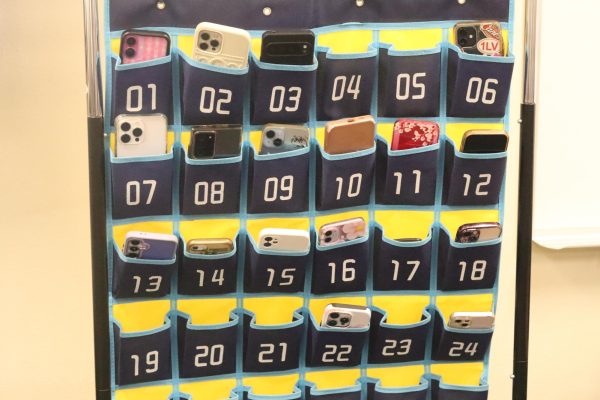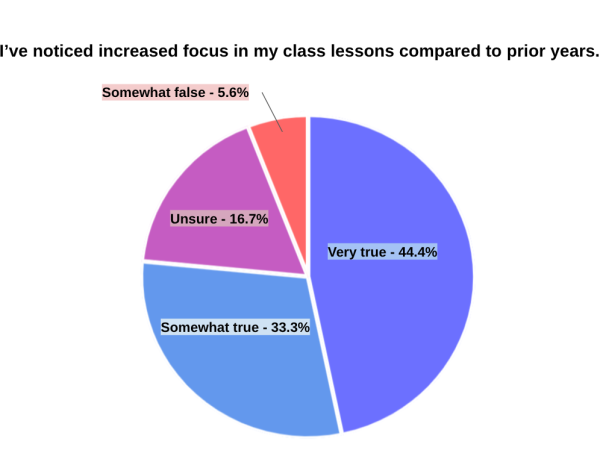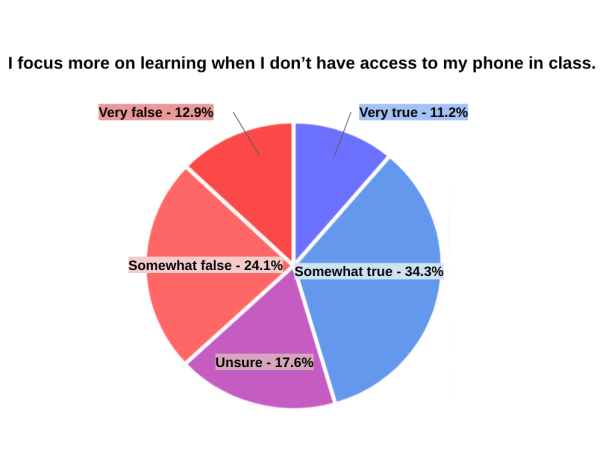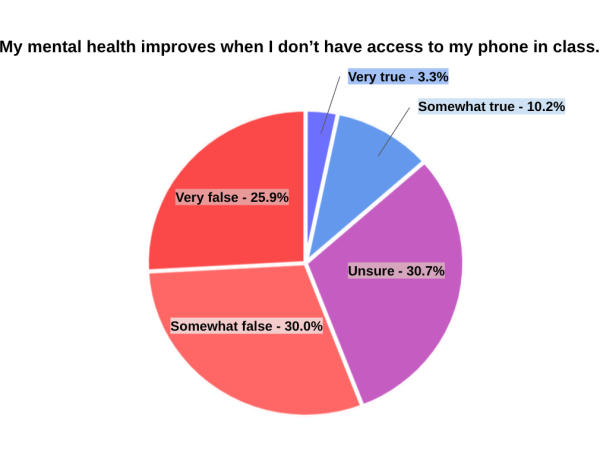
FUHS sophomores enthusiastically talked about the kinds of content they could watch on their phone during class last year.
Whenever Patrick Hong opened his phone, he always saw something completely random.
“You’re going to see a Japanese man hitting a bomb,” Hong said, half-joking but also pointing out viral clips to random videos. Students never quite know what will pop up on their screens. Hong also says that he would constantly have his ears plugged with tunes.
“My Spotify Status was 50% lower this year due to the cell phone policy,” he said.
Nataly Garcia would find herself looking at how to make lemon bars without baking them.
“Nara Smith was trending and she likes making everything homemade. She would make homemade napkins too, I don’t know why that interested me a lot,” Garcia said.
They were shocked to come to school this year to find that the cell phone policy doesn’t allow them access to this entertainment during school time.
The FUHS cell phone policy has been in place for a long time. However, teachers were free to determine their own cell phone policy in the classroom in prior years. While in theory more freeing for teachers, a lot of teachers found that no unifying cell phone policy led to a lot of confusion among students.
Then, Governor Gavin Newsom signed the Phone-Free School Act last year, requiring California school districts to implement some sort of policy limiting cell phone use in class by July 2026. While FUHS already technically had a policy, this prompted them to address the teacher’s concerns, according to Assistant Principal Leticia Gonzalez.

“A lot of teachers were requesting a unified approach,” Gonzalez said. “So this year, coming down from the state of California and now to the district, it made perfect sense to just say, okay, cell phones away during class time.”
In an anonymous survey the Tribe Tribune sent out, teachers reported positive effects coming from the cell phone policy. 75% said it was “very true” that the cell phone policy benefited students’ learning. The majority said it was either “very true” or “somewhat true” that there has been increased focus and productivity in class this year.
“A cohesive, campus-wide policy seems to help students know what to expect and adhere to the policy,” one teacher commented on the survey. Another commented, “I am so glad to have a school wide cell phone policy again! So much better for classroom culture and student learning!”

Reactions among students in a similar anonymous survey are more mixed, with a relatively even split on if the cell phone policy increases focus and productivity in class or not. A lot of students commented criticisms of the policy, saying it’s too strict, that music from their phone helps them focus, or that they don’t believe the policy is that effective.
“My learning ability doesn’t change with or without my phone,” one student commented.
A sophomore at FUHS Lia Kim addressed that even if the school sees phones as a distraction, the phones are really useful for students.
“Students probably nowadays use their phones, but I don’t use my phone. I only use it to use the calculator, along with trying to gain extra notes like during homework time in class. I sometimes charge my Chromebook so I don’t have access to do my assignments usually, so then I would just pull out my phone and then just take notes on it through there.”
A lot of students also had concerns about not being permitted to access their phones to contact family during an emergency, but in such an event educators are legally required to allow phone use.
One interesting result from the student survey was that, despite many studies indicating that cell phones have a negative impact on mental health and that was one of the main reasons the Phone-Free School Act was passed, the majority of student respondents said that their mental health didn’t improve when they didn’t have access to their phone.
A potential reason for that, FUHS nurse Kristina Smith thinks, is because people have gotten used to the stimulation that phones provide and taking them away feels disappointing.
“There’s an addictive piece to it,” Smith said. “There’s definitely some studies out there that talk about that endorphin rush that we get from being happy about looking at pictures and the videos and things, and then you take it away and there’s no more rush.”
This contributes to a lack of focus in classes as well.

“There was a time before cell phones where actually people enjoyed learning new information. But now we’d rather [consume media] than attend school, because that’s not as entertaining, stimulating to my brain in a positive way, as rote learning,” Smith said. “A majority of the class hasn’t been able to comprehend what the teacher is teaching, well, because they’ve been distracted. They always used to talk about the idea that multitasking, there kind of isn’t. Our brain really doesn’t do that very well.”
Smith also addresses other ways that cell phone use can impact students, such as sleep deprivation, where parents may think that their children go to bed at a reasonable time but they’re up until late hours on their phone, and vision deterioration.
“You don’t even realize how you’re looking at things, when you’re your eye is exercising as muscles. Focus, unfocused, focus, unfocused, focus, unfocused,” Smith said. “I’m getting more kids with problems with that type of thing, weak eye muscles.”
Responses to the Phone-Free School Act vary by district. In LAUSD’s version, phones, earbuds, and watches must be turned off and stored away; campuses may use pouches, lockboxes, or backpacks.
Across the U.S., 30+ states have passed or are considering school cellphone restrictions. While they receive a lot of support, their effectiveness is being questioned. Researchers Nirmita Panchal and Sasha Ziter published a research paper about it last year.
According to them, enforcement of this policy is difficult to navigate and typically falls on teachers. The impact of these policies on mental health are difficult to measure.
“Emerging research on student outcomes [of cellphone bans] is mixed, with some studies suggesting improvements in student mental health and academic performance and a reduction in bullying, and others showing little to no change,” their paper said.
However, there are more certain links that tie excessive cell phone usage with poor mental health. Social media use tends to lead to mental health issues, cyberbullying is prevalent, and cell phone use distracts from in-person socializing.
Smith believes that the best thing to do is prevent overuse of cell phones from an early age. However, since high schools can’t do anything about young children, policies like this are the best they can do.
“They’re doing what they can given what they can,” Smith said.






